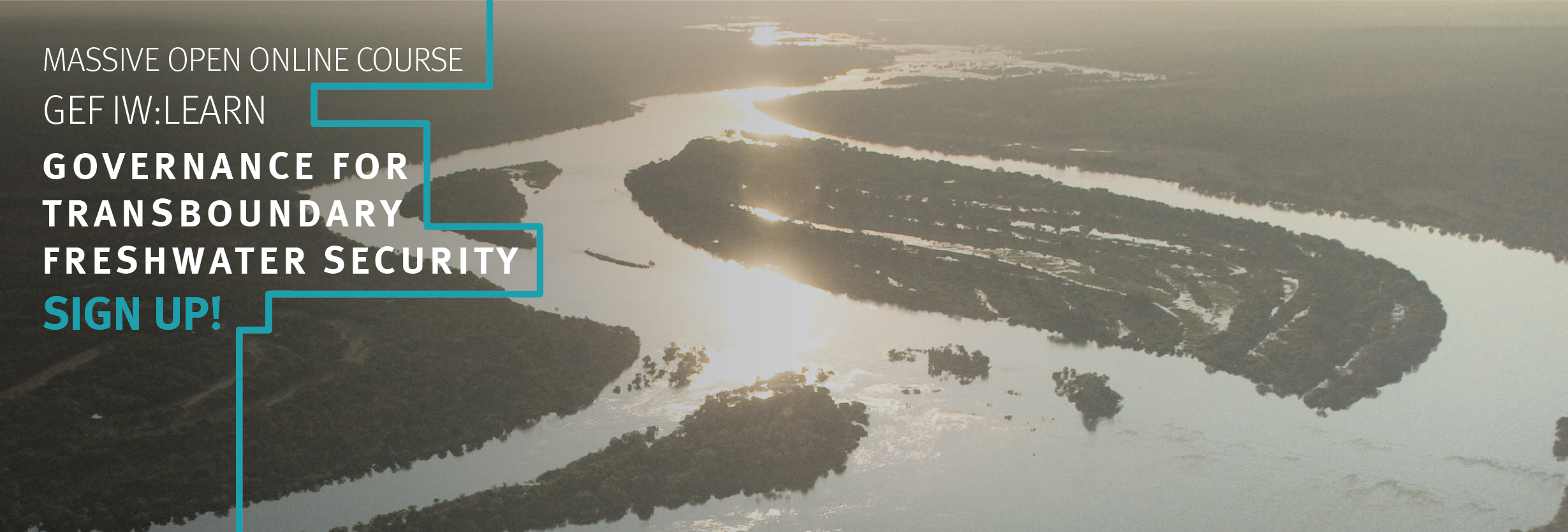About this course
Freshwater scarcity, stress, and water crises are increasing worldwide. More than a billion people live in water-scarce regions, and 3.5 billion people could experience water scarcity by 2025. These pressures disproportionally affect vulnerable and marginalised people, including those living in poverty. Rising pollution levels accelerate the crisis by reducing water availability for human use and impacting aquatic life in rivers, lakes, aquifers, and oceans.
Transboundary basins account for roughly 60% of freshwater resources, serving 2.8 billion people, or 42% of the world’s population. Complex shared transboundary freshwater and ecosystems cut across a myriad of sectoral needs, themes, and political boundaries. Setting effective policy goals, coupled with investments, means working at multiple scales with a range of public and private stakeholders throughout the watershed, from source to sea and beyond.
The MOOC
This MOOC presents multiple facets of governance for transboundary freshwater security – from financing mechanisms to negotiation skills – while emphasizing the urgency of sustainable development and cooperation at many levels.
It extends from basic building blocks and concepts to advanced thinking about transboundary governance, and it applies theory to practice through examples and case studies. The topics of the MOOC are covered in six modules, ranging from the fundamentals of transboundary water security to international water law, water diplomacy, negotiations, institutions, management tools, and sustainable finance.
Sign up for the course on the SDG Academy platform. The course is also available in French on the Cap-Net virtual campus: Cours Massif Ouvert en Ligne (MOOC) sur la Gouvernance pour la Sécurité des Eaux Douces Transfrontalières
The Partners behind
GWP and GEF IW:Learn produced the MOOC, and the modules have been coordinated by GWP, UNU-INWEH, UNECE, Northumbria University, SIWI, UNESCO International Centre for Water Cooperation, IHE Delft, GEF, IW:LEARN, UNDP, UN Environment, UNESCO Intergovernmental Oceanographic Commission, and Wuhan International Water Law Academy.
Over 80 water professionals from around the world have brought their experiences to lectures and case studies. They represent the following institutions:
Global Water Partnership (GWP), United Nations University Institute for Water, Environment and Health (UNU-INWEH), University of Oxford, International Institute for Applied Systems Analysis (IIASA), Uppsala University, Global High-Level Panel on Water and Peace, Ministry of Water and Sanitation for the Government of Senegal, MEF University, Global Environment Facility (GEF), Stockholm International Water Institute (SIWI), International Centre for Water Cooperation (ICWC), Environment and Water Diplomacy, European External Action Service, Scientific Information Center of Interstate Commission for Water Coordination in Central Asia (SIC ICWC), Ministry of Water of the United Republic of Tanzania, Ministry of Energy and Water, Republic of Lebanon, Oregon State University, Organization for Security and Co-operation in Europe (OSCE), Northumbria University, The World Bank, University of Strathclyde, SADC Groundwater Management Institute, Chicago Kent College of Law, Geneva Water Hub, Externado University Colombia, IHE Delft Institute for Water Education, Deutsche Gesellschaft für Internationale Zusammenarbeit (GIZ) GmbH, NUPS, Mekong River Commission (MRC), Regional Environmental Centre for Central Asia, East Carolina University, University College Cork, United Nations Development Programme (UNDP), International Commission for the Protection of the Danube River (ICPDR), Orange–Senqu River Commission (ORASECOM) Secretariat, University of the Western Cape, Nile Basin Initiative, The Integrated Drought Management Programme (IDMP), Global Water Partnership Central and Eastern Europe, UNDP-GEF Kura II Project, UNESCO Intergovernmental Hydrological Programme (IHP), Sahara and Sahel Observatory (OSS), Global Water Partnership Mediterranean, UNECE Water Convention, Organization for the Development of the Senegal River (OMVS), Organization of American States (OAS), African Water Facility, GEF International Waters Learning Exchange and Resource Network, Niger Basin Authority, Lake Victoria Basin Commission Secretariat, UNDP-GEF, UNDP GEF IWRM (GIRHT) Project

